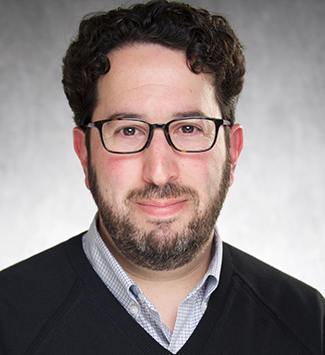The National Science Foundation has awarded the University of Iowa a grant for a hybrid quadrupole-Orbitrap mass spectrometer. The scientific instrument will be used for the advancement of knowledge in environmental chemistry, water treatment, bioremediation, natural products, medicinal chemistry, food safety, and more.

The mass spectrometer has electrospray ionization capabilities and is equipped with an ultra high pressure chromatograph, according to the grant application. UI Chemistry faculty Elizabeth Stone and James Gloer partnered with College of Engineering faculty Keri Hornbuckle and David Cwiertny to successfully apply for the grant.
Stone, who led the team of researchers who acquired the mass spectrometer, said her team is in the process of using the instrument to study vehicle emissions related to human health and sea-spray particles linked to climate.
“What’s special about this instrument is that it has very high mass resolution, which means it can measure the mass to charge ratio of a particle with very good accuracy,” Stone said.
The mass spectrometer’s accuracy is especially important for telling researchers what the molecular formula of a particle is, noted Stone. It can give information about the particle as a whole, or look at individual pieces of it. Additionally, the instrument can be used to quantitatively understand how many particles are present.
“When we can better understand the composition of these particles, we then are better equipped to evaluate what are the impacts of these particles on humans who breathe them in,” she said.
The instrument, which is housed in the UI's High Resolution Mass Spectrometry Facility, will benefit researchers in multiple disciplines, including chemistry, engineering, toxicology, pharmacy, and biology. It will strengthen research not only at the UI but also regionallly, and advance discovery in fields such as environmental chemistry, surface chemistry, natural products, water treatment, and organic synthesis.
“I’m really excited about this instrument not just because it will advance my research program, but it can really advance research across the entire campus and even the surrounding community,” Stone said.

Joshua Weiner, Associate Dean for Research in the UI College of Liberal Arts and Sciences, said technological advances in scientific instrumentation allow today’s researchers to ask questions and test hypotheses in ways they could not previously. He commended Stone, Gloer, Hornbuckle, and Cwiertny for their hard work in writing a successful application to the NSF, and bringing new possibilities for research to the UI campus.
“This is wonderful equipment, but it does add to the expense of equipping a state-of-the-art laboratory,” Weiner said. “So this Major Research Instrumentation grant is so important to strengthening our research infrastructure at the UI.”
“I hope that the proximity of this state-of-the-art instrument will bring together researchers working on a wide variety of scientific questions, including environmental contaminants, bioremediation, food safety, and drug design,” he said. “Instrumentation like this can help attract new faculty candidates to UI, and will lead to new grant applications from our faculty as they incorporate new techniques into their work.”
—By Katie Ann McCarver